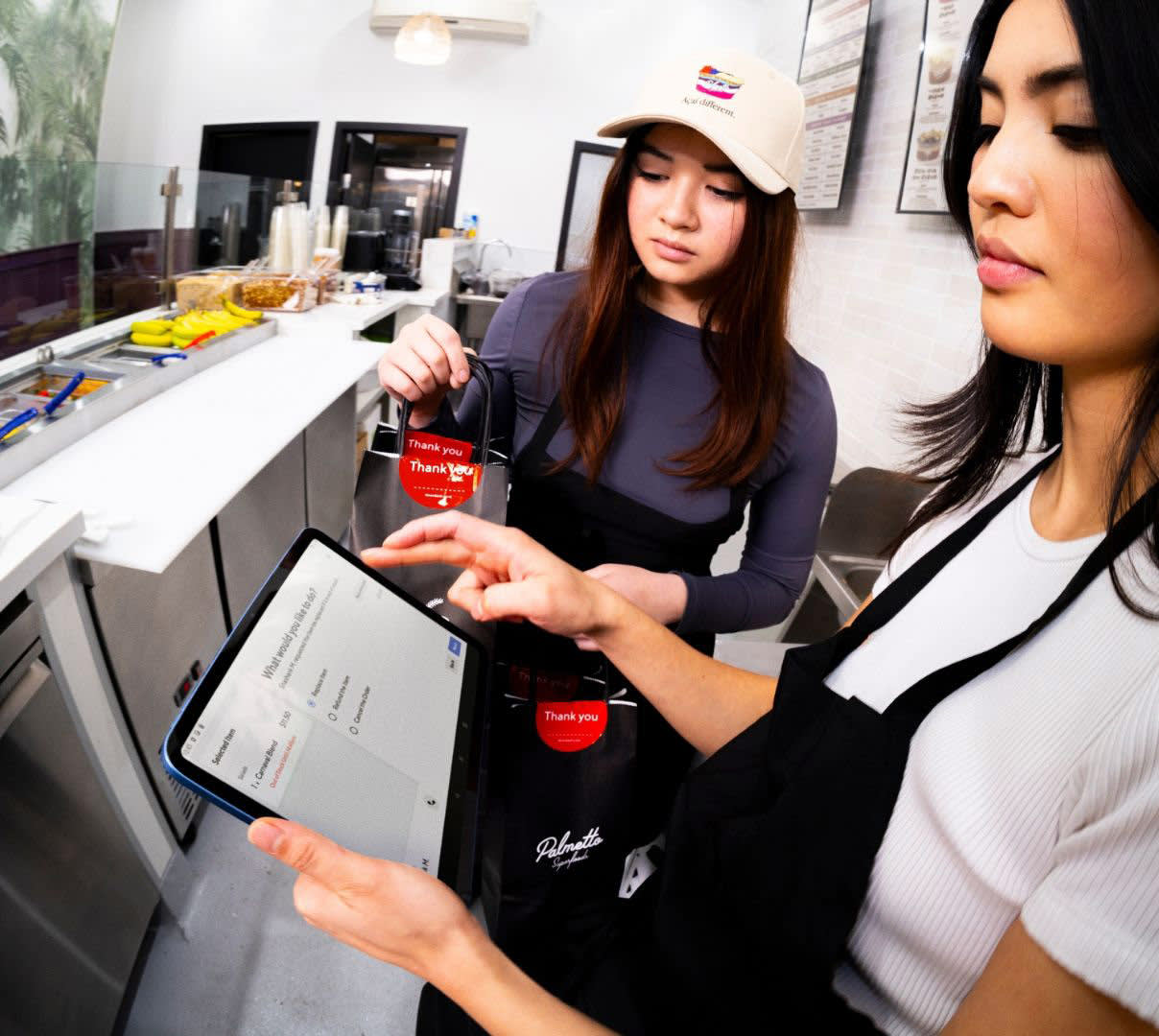With advances in technology and the increasing demand for convenience, more and more customers are turning to delivery to get their meals. The food delivery industry continues to grow, offering restaurants various options for reaching new and existing customers. This article compares in-house delivery services with third-party delivery services (3PDs) to help restaurant owners determine the best fit for their business.
Understanding third-party food delivery services for restaurants
A third-party delivery service connects restaurants with customers so they can browse menus and place orders, letting the platform handle the logistics of the food delivery. There has been incredible growth in third-party food delivery services for restaurants, with platforms like DoorDash leading the market. For instance, 86% of diners order on third-party apps at least 2X per month, and 74% of consumers have used DoorDash to order from restaurants they would not otherwise have tried. The primary benefit of 3PD platforms is that they can provide access to a broader customer base without the headaches of managing an in-house delivery team.

"On top of just having access to drivers and not having to manage it yourself, third-party delivery platforms can bring you business."
Benefits of partnering with a third-party food delivery service
There are numerous benefits that come with partnering with a third-party food delivery service.
Save on labor costs
Third-party food delivery services for restaurants eliminate the need for restaurants to hire and manage their own delivery drivers, offering savings on labor costs, administrative work, and time. Orders are placed online and automatically processed, freeing up existing staff to take on other tasks instead of answering the phone for takeout orders.
Increase customer reach
Using a third-party delivery service like DoorDash can boost marketing efforts by making restaurants discoverable to new customers in nearby areas, and the reviews on third-party platforms also add visibility and build trust. In DoorDash's 2023 Community Impact Report, 87% of surveyed merchants say that DoorDash helps them reach new customers they would otherwise not be able to reach, 75% of consumers have discovered new merchants or retailers through DoorDash, and 65% of consumers have used DoorDash to order from merchants that would otherwise be too far away.
Enable operational efficiencies
Third-party delivery services generally have analytics dashboards to help identify business performance, profitability, and valuable customer data. Restaurants can use this data to identify increased sales and repeat business opportunities, such as using promotions, capitalizing on popular items, and more.
Boost sales and profitability
Third-party delivery can help restaurants expand sales, with 51% of consumers reporting that their preferred method of ordering restaurant food delivery is via third-party apps or websites. Profitability from increased incremental sales is a particular benefit of third-party delivery — restaurant costs like rent, payroll, utensils and ingredients are already fixed, so adding online delivery doesn't require additional upfront operating costs or new staff.

"Without a doubt there is absolutely more revenue. Without DoorDash we wouldn't have those additional orders. We make money on DoorDash. Not as much as dine-in, but we wouldn't do delivery if it wasn't working."

Setting up in-house vs. using third-party food delivery services
While there are clear advantages to third-party food delivery services for restaurants, some prefer to handle their deliveries in-house. Here are some factors to consider when deciding between the two options:
In-house delivery means restaurants must:
Hire and train reliable delivery drivers
Implement delivery order management and tracking systems
Purchase and maintain delivery vehicles with the necessary insurance
Ensure drivers are well-trained in customer service and food handling
Invest in thermal bags and other essential equipment
Promote the in-house delivery service to customers
Third-party delivery services offer restaurants the flexibility to:
Bypass logistics and expenses of setting up a delivery service and hiring drivers
Leverage built-in marketing tools to boost visibility
Incorporate technology like the DoorDash tablet and POS integrations to streamline operations
Offer an efficient and seamless end-to-end delivery process for customers
In-house delivery requires hiring staff, purchasing insurance, and managing logistics daily. Third-party services like DoorDash offer a streamlined alternative, handling logistics and providing technology integrations that enhance operational efficiency.

How to choose the right food delivery service for your restaurant
To choose the right delivery service, consider your order volume, costs, customer experience, and brand alignment. Talk to other restaurant owners for insights, and evaluate the integration capabilities of the delivery service with your existing systems. Here are some key points to consider:
Assess your needs: Determine whether your volume of orders justifies the investment in a third-party delivery service or if in-house delivery is a more viable choice.
Evaluate costs: Compare the costs of setting up and maintaining in-house delivery versus the fees associated with third-party services.
Consider the customer experience: Think about how each option will affect your customers' experience, from order accuracy to delivery times.
Set partnership expectations: Ask potential third-party delivery platforms about the level of partnership you can expect from them and how engaged and responsive they'll be to your needs.
Review the technology and integrations: Choose a delivery option that can integrate seamlessly with your existing POS and order management systems.
Get feedback: Talk to other restaurant owners who have used in-house and third-party services to gather insights and recommendations.
Consider direct ordering solutions: Some third-party delivery services offer white-label solutions like DoorDash Drive On-Demand or Online Ordering that give restaurants more control of the delivery process without third-party branding.
In today's competitive marketplace, the right food delivery service for restaurants can set your business apart — 70% of merchants report that DoorDash has helped to increase profits and, even more dramatically, 19% of merchants also say that without DoorDash, their business would not exist today.

"DoorDash is not just going to say, 'Let's turn you on and go.' They approach it like 'How can we be successful together?' and I think that's really a key element to why they're such a strong partner."
Deciding on delivery
Whether you end up managing deliveries in-house or using a third-party service, take time to determine your goals, research the market, and make an informed decision. Each option has benefits and challenges, so carefully assess your needs and capabilities to decide which is right for you.
Ready to explore the benefits of a third-party delivery service? Learn how to partner with a third-party delivery service to get started.





